How to Ask For Directions In Japanese: 14 Key Phrases (With Audio)

In this article, we introduce some convenient Japanese phrases that you can use when you're lost or need directions in Japan.
Japanese Phrases You Want To Know When Traveling
During your trip in Japan, there will probably be times when you want to ask directions or get help for getting on a train or bus. Today, we'll be sharing some convenient Japanese phrases that will help you on your journey!
When Walking Around Town

From The Wonders of the TNM's Toyo-kan in a Japanese Garden
1. Kokuritsu Hakubutsukan wa doko desuka? / Where is the National Museum?
[kokurits hakubuts kanwa doko deska]
Where is ◯◯?
[◯◯wa doko deska]
is a phrase for asking about the location of something.
Just insert wherever your destination is in the ◯◯. Easy!
This phrase is good for when your destination is not in sight, but relatively close. (For example, if you've reached the nearest station but can't seem to find the facility.)
2. Massugu, Migi, Hidari / Straight, Right, Left
[massugu] [migi] [hidari]
These are critical words for understanding directions!
・[hi] is pronounced by creating an [i] shape with your mouth, and breathing out as if to rub your upper jaw (if you've ever studied German, it's the "ch" sound of "ich") and combining it with the vowel [i].
3. Skytree made tooi desuka? / Is it far to Skytree?
[skai tsuri: made to:i deska]
・[tsu]… A sound like that of "cats" or "boots", combined with the vowel[u]. Make sure you don't separate the "t" and "su".
When you want to ask whether there's a distance to your destination, use:
Is it far to ○○?
[○○made to:i deska].
4. Kokokara arukemasuka? / Can I walk from here?
[kokokara aruke maska]
This is a nice phrase for when you want to ask if you can walk to your destination.
When you want to add your destination to this phrase, it'll go like this:
Can I walk from here to ◯◯?
[◯◯ made kokokara aruke maska]
Ex.
・Can I walk to Skytree from here?
[skai tsuri: made kokokara aruke maska]
5. Skytree made douyattara ikemasuka? / How can I get to Skytree?
[skai tsuri: made do: yattara ike maska]
If you're somewhere pretty far from your destination (like when you haven't reached the nearest station yet) and you don't know how to get there, ask:
How can I get to ◯◯?
[◯◯made do: yattara ike maska]
・[made] is not pronounced like "made" in English. It's pronounced [ma][de].
When Riding A Taxi
6. Skytree made onegai shimasu. / To Skytree, please.
[skai tsuri: made onegai shimas]
When you want to tell the taxi driver where you're headed, say:
To ◯◯, please.
[◯◯made onegai shimas]
Just this one phrase will do.
7. Skytree made daitai ikura desuka? / About how much is it to Skytree?
[skai tsuri: made daitai ikura deska]
When you want to know approximately how much the fare will be, you can ask before you get on the taxi:
About how much is it to ◯◯?
[◯◯ made daitai ikura deska]
8. Arigato gozaimashita. / Thank you.
[arigato: gozai mashta]
Once you've reached your destination and you're getting off the taxi, you'll want to thank your driver!
Say:
[arigato: gozai mashta]
When Getting On A Train Or Bus
How can I get to Asakusa?
[asaksa made do: yattara ikemaska]
We've already done this one, so this is review on how to ask how to reach your destination.
9. Asakusa made ikura desuka? / How much is it to Asakusa?
[asaksa made ikura deska]
When you're asking for the fare to your destination, you can ask:
How much is it to ◯◯?
[◯◯made ikura deska]
10. Korewa Asakusa ni ikimasuka? / Will this go to Asakusa?
[korewa asaksani ikimaska]
When you want to make sure that the train or bus in front of you is headed to where you think it is, you can ask:
Will this go to ◯◯?
[korewa ◯◯ni ikimaska]
11. Midori no madoguchi wa doko desuka? / Where is the Midori-no-madoguchi?
[midorino madoguchiwa doko deska]
At large JR stations, there are information centers called Midori-no-madoguchi. Here you'll be able to find information on value tickets for trains, shinkansen and more.
You can also reserve your seat at the Midori-no-madoguchi if you're using a Japan Rail Pass .
On The Train/Bus
12. Asakusa made ato ikutsu desuka? / How many more stations is it to Asakusa?
[asaksa made ato iktsu deska]
When you want to know how many more stations it is to your destination, you can ask someone around you:
How many more to ◯◯?
[◯◯made ato iktsu deska]
・Reply examples:
・It's the next station.
[tsugino eki des]
・Two more.
[ato ftatsu des]
・You're on the opposite train.
[hantaino densha des]
13. Tsuitara oshiete kudasai. / Please tell me when we are there.
[tsuitara oshiete kudasai]
If you want to be alerted when your bus has arrived at your destination, you can ask someone a favor:
[tsuitara oshiete kudasai]
After Getting Off The Train
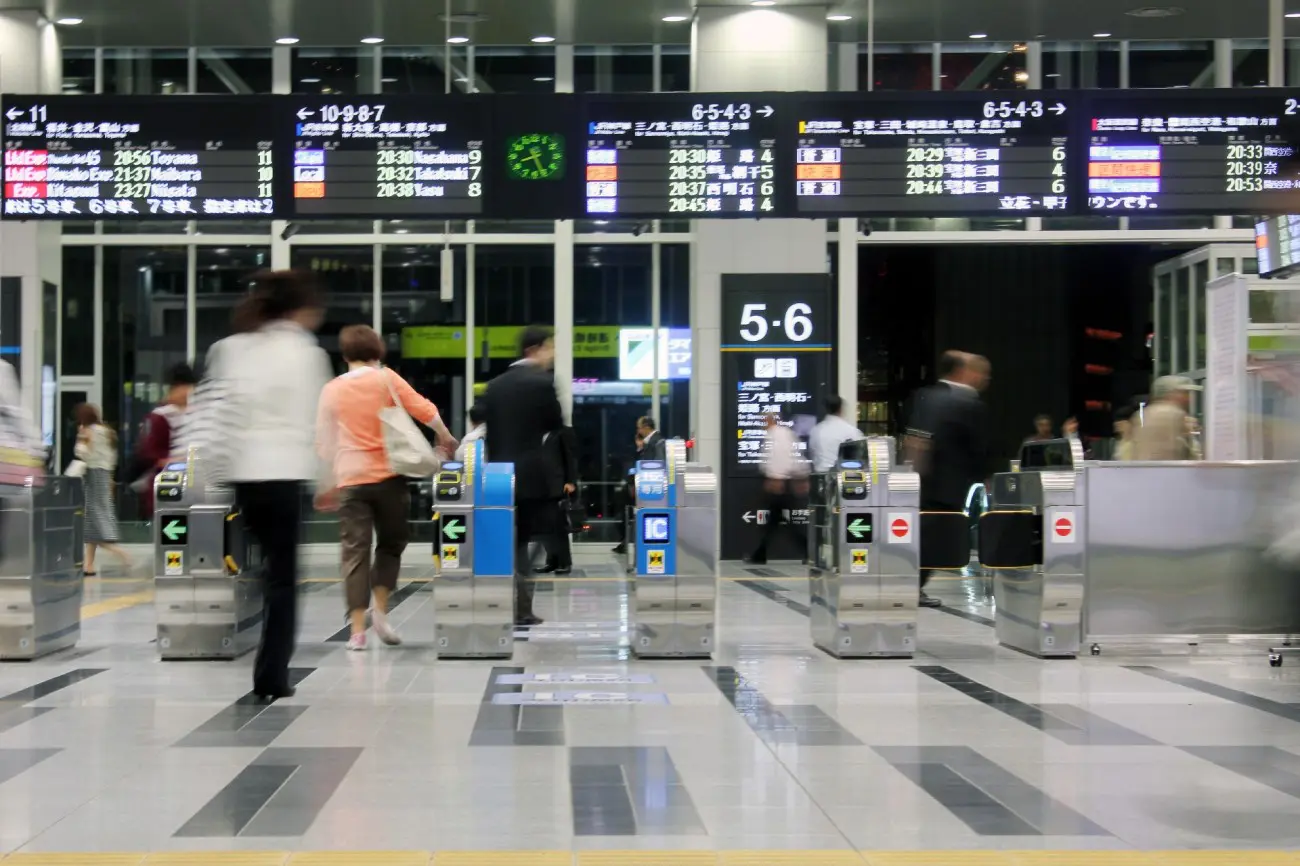
14. Sensoji wa docchi desuka? / Which way is Sensoji?
[senso:jiwa dotchi deska]
Especially in large cities, stations can have many exits.
If you exit from the wrong one, it might take you an extra ten minutes or more to reach your destination.
Once you've reached the nearest station, you might want to ask:
Which way is ◯◯?
[◯◯wa dotchi deska]
"Docchi" is an interrogative word for asking which direction or which one from options or choices.
Review
1. Kokuritsu Hakubutsukan wa doko desuka? / Where is the National Museum?
[kokurits hakubutsu kanwa doko deska]
2. Massugu・Migi・Hidari / Straight・Right・Left
[massugu] [migi] [hidari]
3. Skytree made toi desuka? / Is it far to Skytree?
[skai tsuri: made to:i deska]
4. Kokokara arukemasuka? / Can I walk from here?
[kokokara aruke maska]
5. Skytree made douyattara ikemasuka? / How can I get to Skytree?
[skai tsuri: made do: yattara ikemaska]
6. Skytree made onegai shimasu. / To the Skytree, please.
[skai tsuri: made onegai shimas]
7. Skytree made daitai ikura desuka? / About how much is it to Skytree?
[skai tsuri: made daitai ikura deska]
8. Arigato gozaimashita. / Thank you.
[arigato: gozai mashta]
9. Asakusa made ikura desuka? / How much is it to Asakusa?
[asaksa made ikura deska]
10. Korewa Asakusa ni ikimasuka? / Will this go to Asakusa?
[korewa asaksani ikimaska]
11. Midori no madoguchi wa doko desuka? / Where is the Midori-no-madoguchi?
[midorino madoguchiwa doko deska]
12. Asakusa made ato ikutsu desuka? / How many more stations is it to Asakusa?
[asaksa made ato iktsu deska]
13. Tsuitara oshiete kudasai. / Please tell me when we are there.
[tsuitara oshiete kudasai]
14. Sensoji wa docchi desuka? / Which way is Sensoji?
[senso:jiwa dotchi deska]
What did you think? If you ever get lost when traveling, you can use these phrases to ask for directions to make the most out of your trip!
A Japanese teacher, calligrapher, singer in my room!












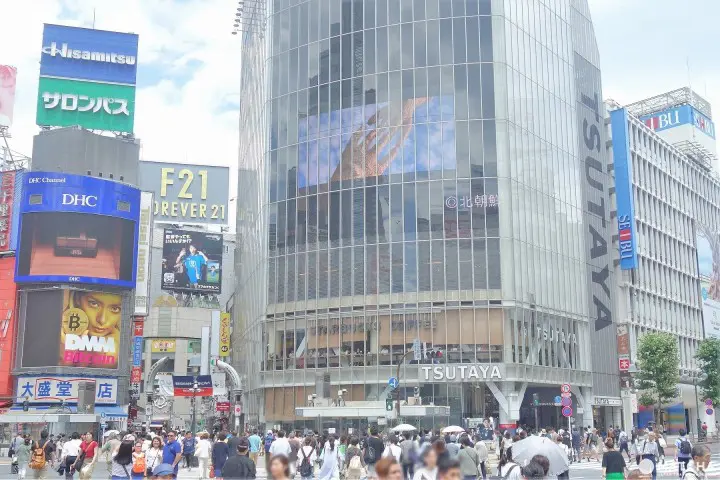

























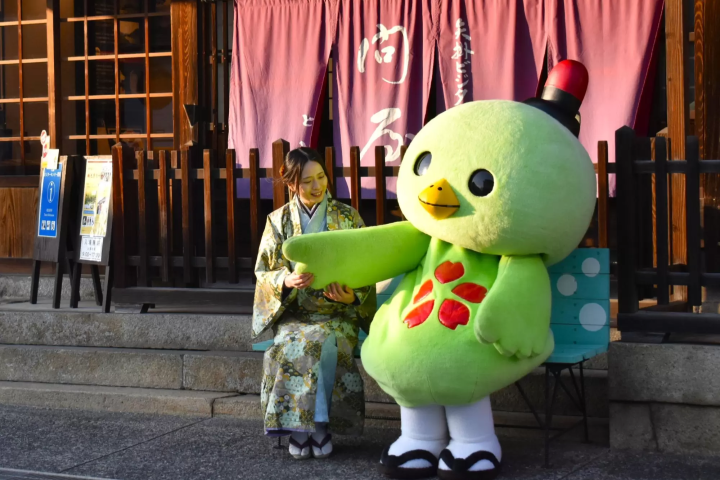
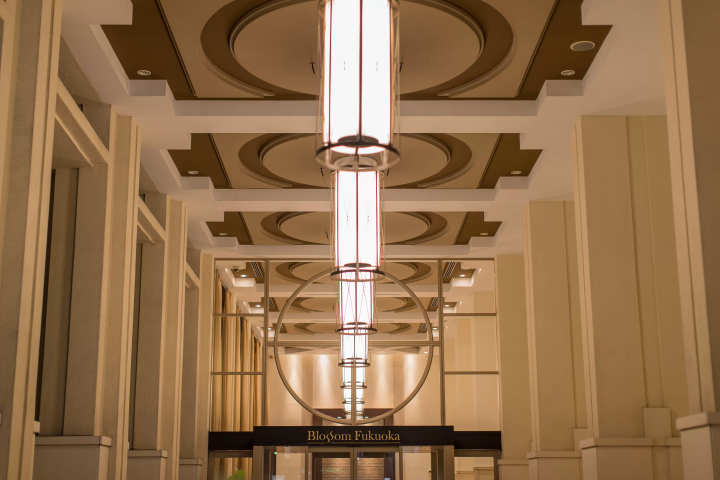
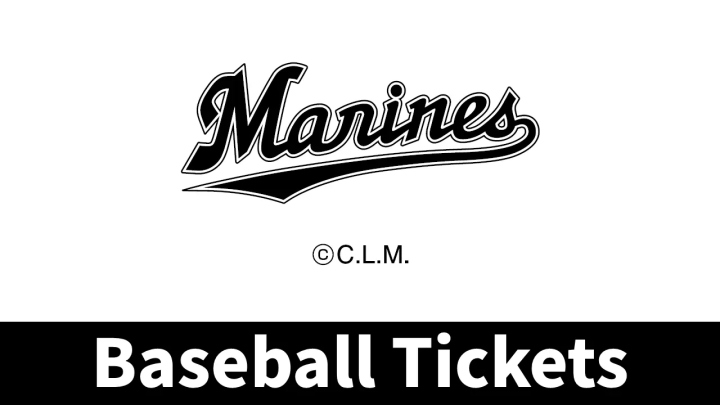
![[2026 Latest] Dogo Onsen and Matsuyama Castle 1-night, 2-day trip by express bus from OCAT](https://resources.matcha-jp.com/resize/720x2000/2026/02/02-257354.webp)